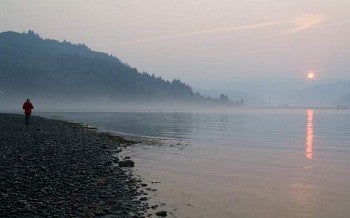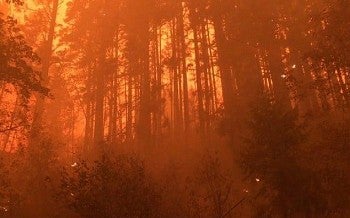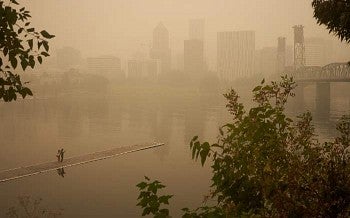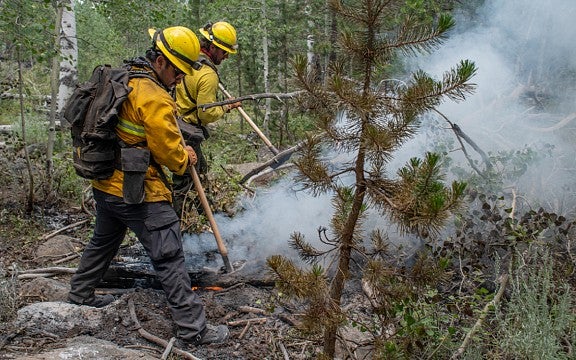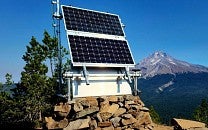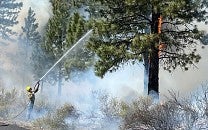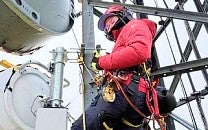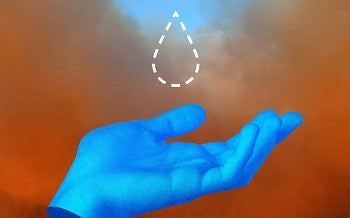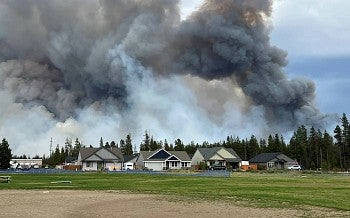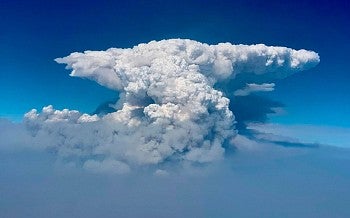Withstanding Wildfires
In Oregon and throughout western North America, recent years have witnessed substantially escalating impacts from wildfire events. Due to many factors including climate change and land management practices, wildfires are intensifying and becoming more common both within and beyond our region.
Fire is a complex, dynamic phenomenon—meeting its challenge requires multidisciplinary approaches and collaborative engagements of community, agency, and scholarly resources. The University of Oregon, a leading research university, is at the forefront of building societal resilience, creating critical knowledge, and developing cutting-edge approaches to help mitigate, prevent, and better understand the effects of wildfire.
What can research tell us about...
Oregon Hazards Lab
The Oregon Hazards Lab (OHAZ)—a research lab within the UO’s Department of Earth Sciences—uses science and technology, plus community engagement strategies to understand, detect, and mitigate a variety of natural hazards throughout the Pacific Northwest.
In collaboration with partner institutions, the Oregon Hazards Lab deploys and operates ALERTWest, the largest wildfire camera network in the world. Installed atop mountains and high-rise buildings throughout the state, 45+ cameras spot and track wildfires.
In partnership with the Department of Homeland Security, an OHAZ pilot program is also installing 30 smoke sensors throughout the Willamette Valley, monitoring changes in air quality and particulate matter to enhance the scope of the fire management platform.
OHAZ equips fire managers with state-of-the-art resources to help:
- Discover, locate, and confirm when wildfires start
- Quickly scale fire-fighting resources up or down
- Monitor fire behavior until containment is achieved
- Improve evacuations through enhanced situational awareness
The Future of Fire
A complex process, wildfire requires a multidisciplinary approach to thoroughly grasp its ramifications. At the University of Oregon, researchers in ecology, sociology, geography, policy and management, and anthropology are combining their unique perspectives to gain a comprehensive understanding of fire and its impacts on West Coast communities.
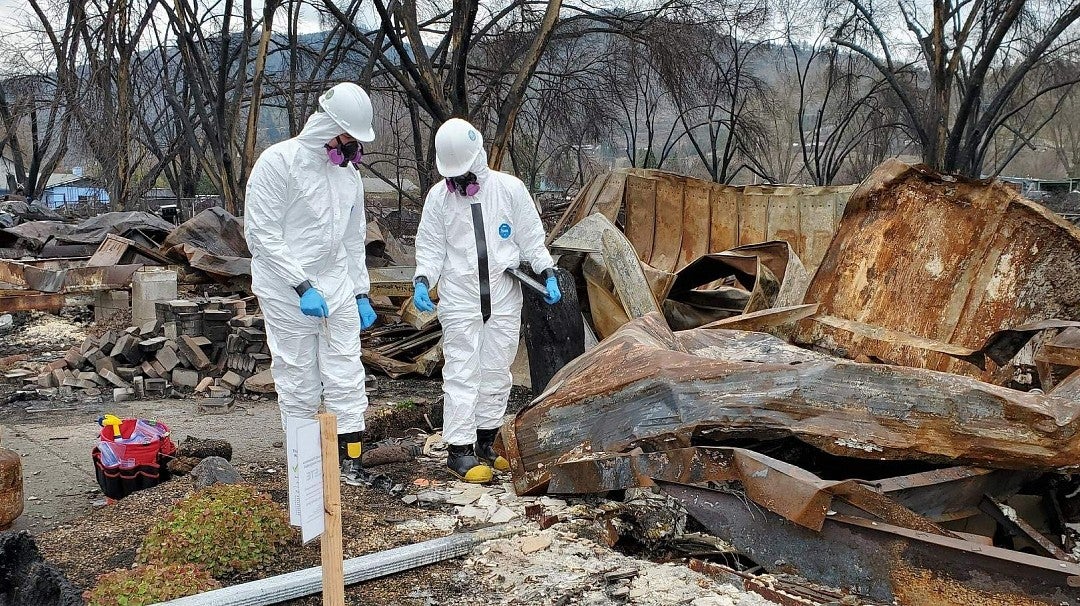
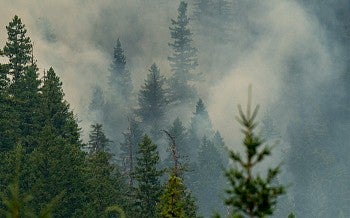
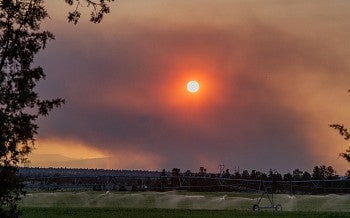
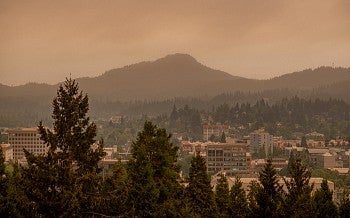
Center for Wildfire Smoke Research and Practice
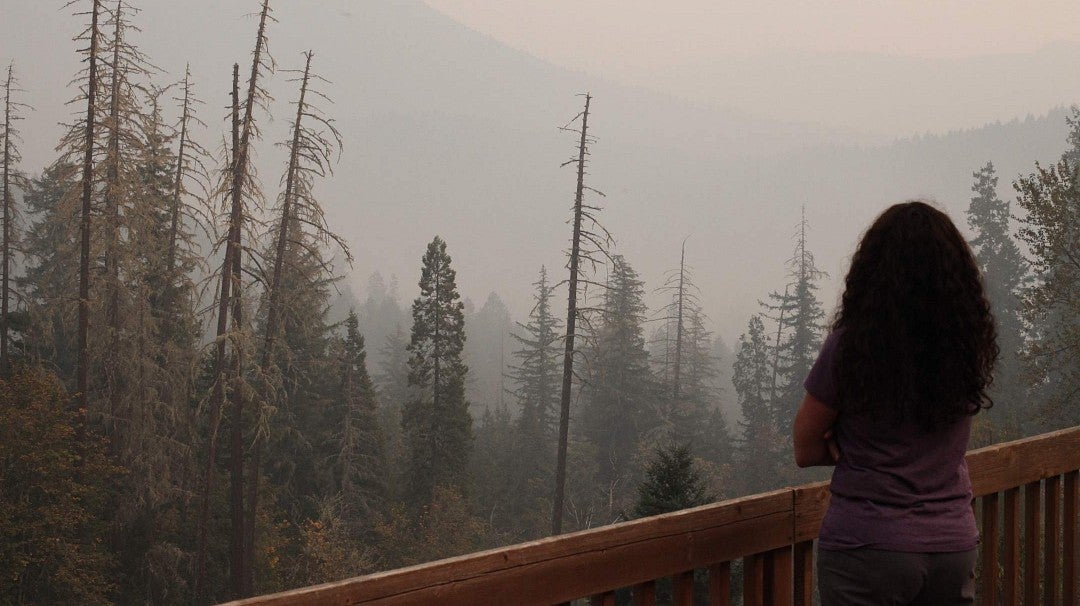
The Center for Wildfire Smoke Research and Practice is an applied research consortium of the Institute for Resilient Organizations, Communities, and Environments, helping communities, policymakers, agencies, and local governments across Oregon better prepare for smoke events.
With funding secured by U.S. Senators Jeff Merkley and Ron Wyden through the Environmental Protection Agency, the center shares information, strategies, and effective monitoring of wildfire smoke with vulnerable populations, offering evidence-based approaches that can be applied across the Western U.S.
Initial research of the center is focusing on:
- Helping communities and households adapt to living with smoke
- Improving public messaging around smoke
- Evaluating the effectiveness of past preparation and response during smoke events
Be Fire-Ready
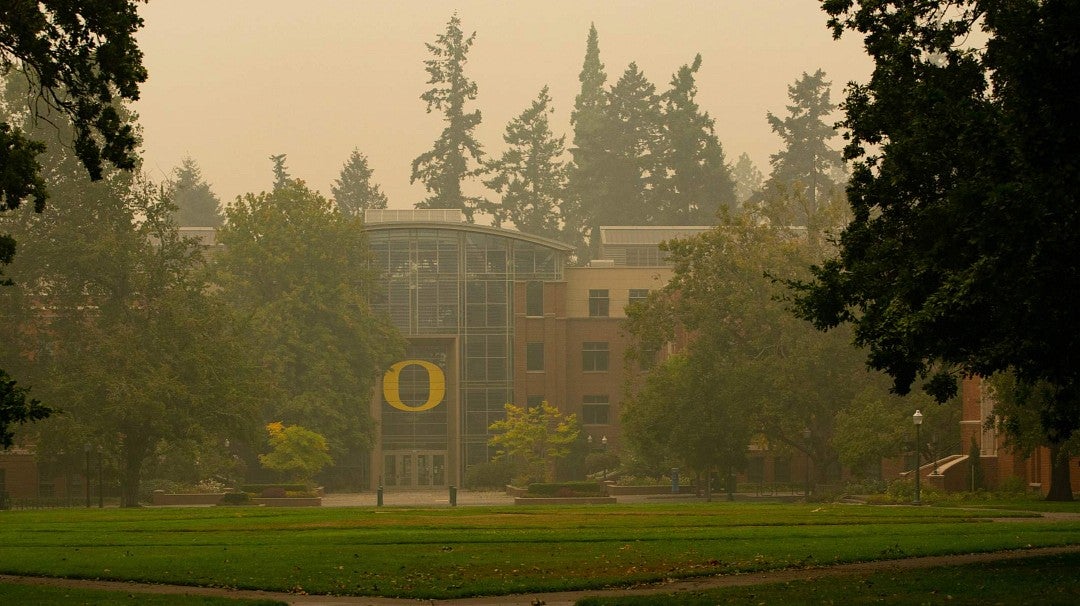
Wildfires can be unpredictable, but they’re becoming a regular part of summer in the western U.S. The following resources can help you be more prepared for their impacts.
Further Resources for Awareness and Safety:


